Rather than passing in an actual JSON, I'm retrieving keyvalues from .env and manually setting them similar to this.
When testing locally, everything works fine. In production w/ Elastic Beanstalk, initialization fails:
Dec 29 01:23:41 ip-000-00-00-000 web: /var/app/current/node_modules/firebase-admin/lib/app/credential-internal.js:143
Dec 29 01:23:41 ip-000-00-00-000 web: throw new error_1.FirebaseAppError(error_1.AppErrorCodes.INVALID_CREDENTIAL, 'Failed to parse private key: ' + error);
Dec 29 01:23:41 ip-000-00-00-000 web: FirebaseAppError: Failed to parse private key: Error: Only 8, 16, 24, or 32 bits supported: 528
Dec 29 01:23:41 ip-000-00-00-000 web: at FirebaseAppError.FirebaseError [as constructor] (/var/app/current/node_modules/firebase-admin/lib/utils/error.js:44:28)
The only difference is that instead of local .env, I'm pulling environment variables from Elastic Beanstalk:

And here are the rest:
config.js:
const dotenv = require('dotenv');
dotenv.config();
const {PORT, TYPE, PROJECT_ID, PRIVATE_KEY_ID, PRIVATE_KEY, ... } = process.env;
module.exports = {
port: PORT,
firebaseConfig: {
type: TYPE,
projectId: PROJECT_ID,
privateKeyId: PRIVATE_KEY_ID,
privateKey: PRIVATE_KEY.replace(/\\n/g, '\n'),
clientEmail: CLIENT_EMAIL,
...
}
}
db.js:
const config = require('./config'),
firebase = require('firebase-admin');
const db = firebase.initializeApp({
credential: firebase.credential.cert(config.firebaseConfig)
});
module.exports = db;
Thanks in advance!